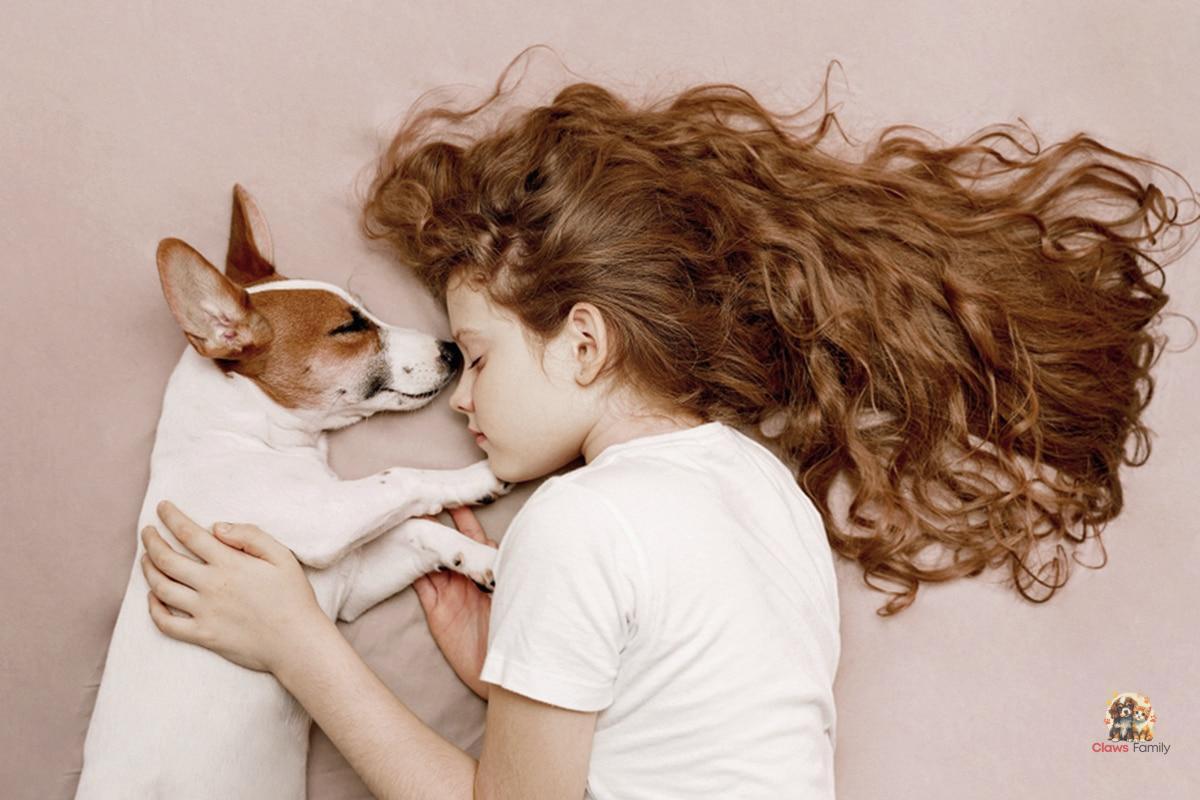The relationship between dogs and children is filled with affection and ancestral instincts that date back to the millennial coexistence between humans and their loyal four-legged companions; for this reason, they naturally and affectionately protect human pups. It’s not uncommon, for example, to see a furry friend sleeping next to a baby just a few months old or guarding the cradle. Additionally, there are many online videos that show dogs "taking a stance" when an adult raises a hand against a defenseless child.
It’s important to know that dogs protect children for reasons that go beyond simple affection. Their DNA, their protective instinct, and their interpretation of the situations around them deeply root this characteristic.
Roots in the Evolutionary Path
As we know, dogs descend from wolves and retain many of their ancestral instincts, including pack protection. This connection to wolves explains why dogs protect children: they see them as part of their pack, their social group, and their family, and they are ready to ensure their well-being, just as a mother wolf would do with her pups.
There are no inherently bad dogs, but the environment and the education they receive can certainly influence certain behaviors. For this reason, proper socialization and appropriate training make a difference in the harmonious coexistence between dogs and children. However, it's crucial to keep in mind that children, and occasionally adults as well, require assistance in comprehending the dog's language and interpreting their signals, fostering a strong bond.
Dog breeds are generally well-suited for caring for children.
It’s worth mentioning that some breeds are better suited to living with children because they are less territorial than others. German Shepherds, Poodles, Bichon Frises, and Cavalier King Charles Spaniels are a few examples. Additionally, Cocker Spaniels, Schnauzers, Beagles, French Bulldogs, and English Bulldogs stand out for their sweetness, patience, and strong predisposition to protect the little ones.
As previously mentioned, some breeds, such as Dobermans, Rottweilers, Dalmatians, Huskies, Chihuahuas, Russian Toys, and Akitas, are considered less suitable for caring for young children due to their tendency to show greater territoriality.
Why is it beneficial for dogs and children to interact?
Dogs not only protect children but also provide important benefits for their emotional growth and psychophysical development. The presence of a dog in the home teaches children to respect animals, promotes empathy, and encourages responsibility. These are all invaluable lessons that contribute to the formation of compassionate, caring, respectful, and aware individuals.
More: Dog News


